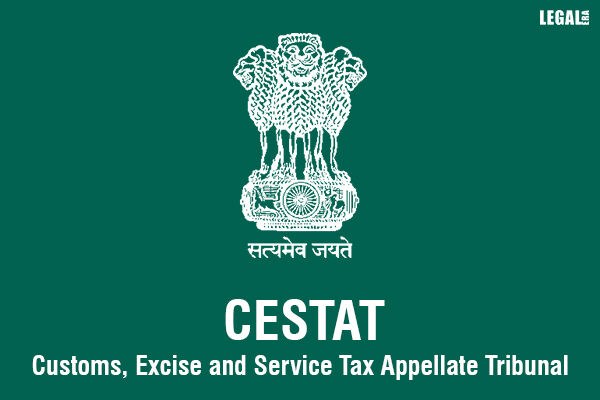
CESTAT Confirms Service Tax Demand on Gurukripa Shahenshah Restaurant: False Claim of No Air-Conditioning Held as Tax Evasion Attempt
Introduction
The Principal Bench of the Customs, Excise and Service Tax Appellate Tribunal (CESTAT) dismissed the appeal filed by M/s Gurukripa Shahenshah Veg & Non-Veg Restaurant, affirming the service tax demand and associated penalties. The Tribunal found that the appellant’s assertion of the absence of air-conditioning (AC) facilities was unsubstantiated and aimed at evading service tax liability.
Factual Background
M/s Gurukripa Shahenshah Veg & Non-Veg Restaurant, a sole proprietorship operated by Sh. Charan Pal Singh, provided Restaurant-cum-Bar services and was registered with the Commercial Taxes Department. The restaurant was subjected to a service tax demand of ₹4,96,013, along with equal penalties and additional fines of ₹5,000 each under Sections 77(1) and 77(2) of the Finance Act, 1944.
The appellant claimed that air-conditioning was only installed briefly in 2010 and removed later that same year, being replaced by air coolers. Electricity bills and statements were furnished to argue that the available power supply of 0.22 KW was insufficient to operate an AC, demonstrating its absence. The appellant contended that no suppression of facts had occurred and that the extended limitation under Section 73(1) was inapplicable.
Procedural Background
The Commissioner (Appeals) had upheld the service tax demand and penalties through an Order-in-Appeal, following which the appellant approached the CESTAT Principal Bench. The appeal was heard by a two-member bench comprising Dilip Gupta (President) and Hemambika R. Priya (Technical Member).
Issues
1. Whether the restaurant was liable to pay service tax under Section 65(105)(zzzzv) of the Finance Act, 1994, despite its claim of not having an AC facility.
2. Whether the extended period of limitation under Section 73(1) was correctly invoked.
3. Whether the imposition of penalties under Sections 77(1), 77(2), and 78 of the Finance Act, 1944, was justified.
Contentions of Parties
Appellant’s Contentions: The appellant argued that the service tax demand was unsustainable since the AC had been removed in 2010, and thus the restaurant did not qualify as an air-conditioned restaurant under the law. It was submitted that the demand was based on a mistaken assumption, with supporting electricity records indicating the absence of an AC. The appellant further claimed that there was no deliberate suppression of facts and that the extended limitation period could not be invoked for a genuine interpretational issue.
Department’s Contentions: The Department, represented by the Senior Departmental Representative, argued that the restaurant’s liquor license, initially granted on 14.07.2010 and renewed subsequently, mandated the presence of an AC facility. The Excise Department had verified this during renewals for 2011–12, 2012–13, and 2013–14. The appellant had declared the presence of AC in its original license application dated 23.06.2010 and failed to obtain service tax registration from May 2011 to March 2015. Thus, the Department contended that suppression and misrepresentation were evident, justifying both the demand and the penalties.
Reasoning and Analysis
The Tribunal examined Section 65(105)(zzzzv) of the Finance Act, 1994, which defines taxable restaurant services as those having air-conditioning in any part of the premises and licensed to serve alcoholic beverages. It observed that the appellant’s repeated declarations in official records confirmed the presence of AC. Furthermore, the Excise Department’s verifications during license renewals validated the existence of AC facilities.
The Tribunal found that the appellant failed to present any credible evidence to substantiate the removal of the AC or to show that the Excise authorities had been informed of such a change. The claim that a 0.22 KW connection precluded AC usage was deemed insufficient to establish non-existence. The bench concluded that the appellant’s conduct indicated an intent to mislead both the State Excise and Central Excise/Service Tax departments.
Referring to prior cases involving the same proprietor, the Tribunal noted that similar claims had been rejected earlier based on documentary verification by the Excise Department. Consequently, the extended limitation under Section 73(1) was rightly invoked, as suppression and misrepresentation were evident.
Implications
The decision reinforces that restaurants providing liquor services must maintain transparency in their compliance with excise and service tax regulations. The case highlights that discrepancies between declarations to different authorities can amount to suppression, leading to extended limitations and penalties. It further underscores the Tribunal’s strict stance against attempts to evade tax liability through unsupported claims of facility changes.
Order
The CESTAT Principal Bench dismissed the appeal filed by M/s Gurukripa Shahenshah Veg & Non-Veg Restaurant. The service tax demand of ₹4,96,013, along with equal penalties and additional penalties under Sections 77(1), 77(2), and 78 of the Finance Act, 1944, was upheld. The Tribunal held that the appellant’s claim regarding the absence of AC was unsubstantiated, and the invocation of the extended limitation period was justified.